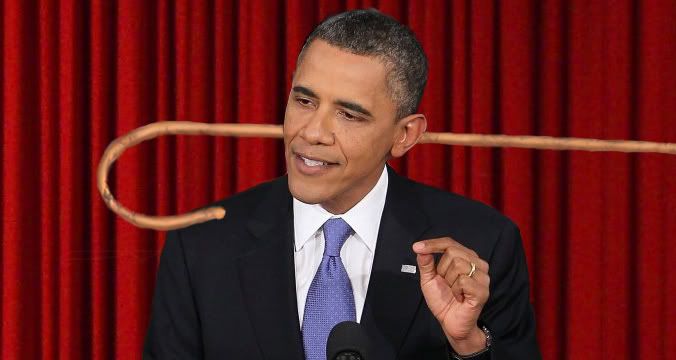PAUL JAY, SENIOR EDITOR, TRNN: Welcome to The Real News Network. I’m Paul Jay in Washington.
In Greece, the financial elites of Europe have gotten agreement from the Greek government to another round of what some people are calling savage austerity measures, for example, lowering the minimum wage by 22 percent, a new round of privatizations, and cuts to pensions and many other social programs. This is, I guess, an example of banks and a banking technocrat that now leads the Greek government directly intervening, calling government policy. So what does this tell us here in the U.S., Canada, and other countries that are watching this?
Now joining us to discuss all of this: Michael Hudson is a former Wall Street financial analyst, a distinguished research professor of economics at the University of Missouri-Kansas City, and he writes at Michael-Hudson.com. Thanks for joining us, Michael.
MICHAEL HUDSON, RESEARCH PROF., UMKC: Thank you very much.
JAY: So, Michael, what should we be learning from what’s going on in Greece?
HUDSON: Well, we should be learning what the European bankers are learning, and that is what is the result of a great experiment that’s going on. For the last five years in Latvia, they’ve-the neoliberals have lowered wages by about 30 percent. The basic premise of today’s model builders are: you don’t know how far you can lower wages and pensions until people begin to press back. Well, in Latvia they still haven’t begun to press back when they’ve lowered for 30 percent. Now they’re moving towards Greece on the way to Spain and Portugal and Italy, and they’re trying to figure out how much can we lower wages, how much can we drain an economy until there is pressure to come back.
And the right wing, who’ve essentially appointed, as you pointed out, a bank lobbyist, which is called a technocrat, in charge of Greece, is: let’s try the experiment to just see how much we can squeeze out-because they’ve realized that the left in Europe is completely fragmented. They don’t have a defense available, they don’t have a body of concepts available to say, wait a minute, this is crazy. When you’re lowering wages, you’re actually shrinking an economy. When you’re cutting the budget deficit, you’re reducing the amount of money that comes into the economy to promote demand. So in effect what Europe is doing is bleeding economies, very much like a medieval doctor would bleed blood on the ground, since this is going to make economies more productive.
Well, the only response that the Greek people have, not simply the left, but the right and the Greek people, is, look, if you think you’re going to increase the surplus, increase taxes by lowering our wages and cutting our pensions and cutting our health care, we’re going to do what the Egyptians are doing and what the Arab Spring is doing. We’re going to tear the economy apart, and there won’t be anything for you. And the PASOK, the socialist party that inaugurated this whole austerity program, now has an 8 percent approval rating in Greece. That’s even lower than Mr. Obama has for cutting wages here.
So what the Greeks are saying: look, when the premier said that they were going to have a referendum for whether we want to cut back the wages to pay the bankers, the first thing Angela Merkel said was, you can’t have a referendum. We’re going to suspend democracy, we’re going to impose a dictator on you, and we’re going to tell you what to do.
Well, under modern international law, if there’s no democratic commitment to pay, then the debt taken on is null and void. Well, the European common market, the European Union, has had its lawyers say, okay, we’re going to get the agreement of congress. Well, the Greek people can say, look, you can come down with bags of money and you can buy all the parliament members that you want to approve the deal, but as soon as there is an election, we’re going to throw them out, and they’re not acting on our behalf, and-.
JAY: Yeah, but it’s not clear by polling that the next election would actually elect a government that wouldn’t go along with this. Most of the parties that seem capable of winning elections in Greece have signed on to this deal. But can I go back to something earlier you said? Is not one of the big objectives here-’cause it’s hard to understand the logic of driving Greece into a decade of depression if you actually want any revenue that’s going to pay some of these debts back, which means, is not the real objective here not more about privatization, that if you can create so much chaos and dependency on the Greek government, on the European financial elites, they’re going to sell everything off? And apparently they’re talking now about selling airports and shipping-seaports, like, a whole ‘nother level of privatizations.
HUDSON: Not only that, but also the water systems, the sewer systems, real estate, the islands. You’re right. They think that if they can create a crisis, it becomes a grab bag area. And bankers and people who have a plan usually do much better in a crisis or a grab bag than people who don’t have a plan. So this indeed seems to be it. Finance today achieves what military invasion used to do in times past. So the new mode of warfare is financial, not military. It’s much cheaper and it’s much safer for the country doing the attack.
So you’re quite right: privatization is a big role. And that’s why yesterday the European Union said, wait a minute, we’re not even going to give you the money to pay us, namely, for us to pay our own banks that have bought your bonds, unless you spell out exactly what you’re going to privatize and commit to it now. And this is a sticking point. In the past, the Greeks have made promises, and thank heavens they haven’t privatized, because once they begin to sell things off, then there’s going to be a real squeeze and even more of an opposition. So you’re right. This is a property grab.
JAY: Yeah. We were joking off-camera. I was saying it’s amazing how the Europeans make Obama’s budget look good. And as critical as you and I and many people we’ve interviewed on The Real News have been critical of Obama, there actually does seem to be some kind of different approach between Wall Street (and, certainly, the sections of Wall Street that helped elect President Obama) and the Europeans. You can hear interviews with Wall Street representatives who actually say, no, you do have to have short-term stimulus before you have these kinds of austerity measures; you can’t force the world into a global depression. You hear that kind of language out of New York and out of President Obama, where the Europeans seem so committed to this severe austerity.
HUDSON: There are two reasons for that. Number one, from the very beginning, from the last century, America has already had in the private sector what was in the public domain in Europe. Europe had its power companies, electric and gas systems in the public domain. America privatized them, but as regulated public utilities. The public utilities were allowed-were regulated as to how much bond and equity they could get, what their rate of return would be. Europe has no body of law to regulate the prices or rent extraction the public utilities can charge, because they’d always had these in the public domain, just like Russia had no and the Soviet Union had no system like this. So the objective of privatizing in Europe, first of all, there’s much more property and public assets to grab in Europe than there were in the United States, and secondly, there is no regulatory body in Europe, because of the fact that in the past, power and sewer and water and public utilities were supplied either at cost or at subsidized rates to make the economy more competitive.
So the idea in Europe is not only that you cut wages by 30 percent, but you’re now going to raise the price of what you just mentioned, the access to water, sewers, transportation, everything else. You’re going to raise the price to put the real squeeze on wages. And the result in Greece will probably be the same as it was in Iceland, Latvia, and other countries. There’s going to be a large emigration of working-age labor. And the result will, of course, be to make the economy much less competitive.
And in this morning’s newspaper, when it turned out that Greece’s GDP fell at 7 percent annual rate, not the 5 percent expected, as usual the newspaper said, to everyone’s surprise, the situation is worse than projected. Well, of course it wasn’t really to our surprise, because we know that when you’re strangling an economy, of course it can’t cope very well. And they’re strangling the Greeks economy. And they’re using it, I think, as a laboratory experiment to say, what’s going to happen when we really just squeeze labor and squeeze labor? It’s like trying to feed a horse less and less and see whether it’s really going to be more efficient until it keels over dead.
JAY: And I guess it’s always-the way large-scale unemployment is always a good threat against the employed within a country, the more you can beat up Greece and Spain, Portugal, the more you can threaten the working class of France and Germany, where I guess the big targets eventually will be.
HUDSON: Well, if that happens, there’s going to be a renewed nationalism that’s going to cut the common market apart, and you’re going to have, all of a sudden, a realization that when Europe united, the whole idea of it’s united was so that it would never go to war again, military war. But now that it’s united under neoliberal bank rules, they think, wait a minute, we’re uniting and we are going to war. But it’s a class war. It’s an economic war. And this isn’t what we wanted. If the idea of uniting in Europe is for a class war under rules where we’re guaranteed to lose, then we’re saying no to Europe, just as the Icelanders have voted not to join Europe, just as other countries that had planned to join Europe, all the way to Turkey at the other end, are saying, wait a minute, if that’s the Europe that’s coming, an oligarchic Europe whose program is austerity and shrinkage, why on earth would we want to join?
JAY: Thanks for joining us, Michael.
HUDSON: Thank you very much.
JAY: And thank you for joining us on The Real News Network.
End






